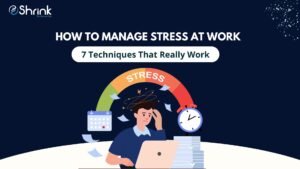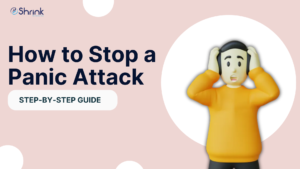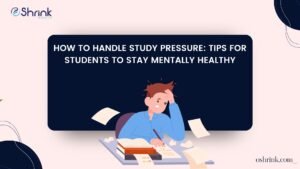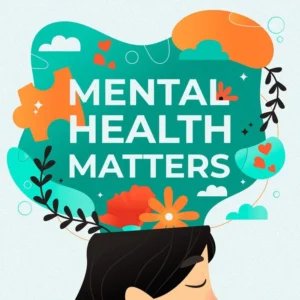What is Healthy Eating?

Healthy eating habits refers to making the right decision of what to eat, when to eat and how much to eat to promote the well-being of health. All of these habits include eating foods that are packed with full of nutrients, vitamins and minerals and not over consuming junk food.
Healthy eating does not mean you have to follow some crazy diet plan or ingnoring foods that you love to have. It is also not about looking good but it is all about feeling great, having more energy and focusing better, feeling health inside out with less mood swings. This includes knowing which food groups you eat when and having proper balanced diet.
The Importance of Healthy Eating Habits

Eating healthy is very important part of taking care of health and well-being, both physically and mentally. Eating a wide variety of foods will provide your body with all the important nutrients it needs to work properly. Below are some major reasons why eating healthy is important:
- Improved Mood and Mental Health: Foods high in Omega-3 fatty acids, antioxidants, vitamins and minerals can all help to improve functioning of brain and mental well-being. Proper food and a balance diet reduce the risk of depression and anxiety.
- Better Physical Health: Eating healthy strengthens the immune system, decreases the risk of chronic diseases such as heart diseases, diabetes and cancer and also helps to maintain a healthy weight.
- Increased Energy Levels: Consuming nutritious meals evenly throughout the day sustains consistent and healthy blood sugar, helping avoid tiredness linked to sugary highs or too much caffeine.
- Improved Sleep: Nutrient-dense foods aid in a higher and better quality of sleep, leading to better health and well-being.
Advantages of Healthy Eating
Healthy eating habits have an abundance of advantages such as:
- Weight Management: Good nutrition is essential to help in managing your weight so that you do not put yourself at risk of illnesses related to obesity.
- Longevity: Eating healthy and nutritious foods can help to prevent diseases and improve your health, naturally helping you live a longer life.
- Enhanced Cognitive Function: A diet heavy in fresh fruits, veggies and lean proteins is good for your brain as it improves memory and cognitive function.
- Better Digestion: Fiber-rich fruits such as fruits, vegetables and whole grains will help in regulating your digestive system, which in turn prevent common problems that include constipation or bloating.
- Stronger Immunity: Nutrient-dense foods help to enhance the immune system which makes our body more effecient in fighting off sickness, infections etc.
Best Eating Habits To Transform Your Health and Wellness

By adopting the following healthy eating habits in your daily life can majorly enhance your overall health:
- Eat a variety of foods: Make sure to eat different types of fruits, vegetables, whole grains, lean proteins and healthy fats. This means you are full with a good assortment of nutrients.
- Portion Control: Make sure that you consider the portion sizes to avoid overeating. Use smaller glasses, plates and bowls.
- Stay Hydrated: Drink lots of water and keep yourself hydrated throughout the day. Do not take sugary drinks like cold drinks and also avoid too much caffeine.
- Limit Processed Foods: Decrease intake of processed and sugary foods. Stick to whole and unprocessed foods.
- Plan Your Meals: Get healthy meals and snacks ready for yourself to resist the craving of so unhealthy fast food.
Top Superfoods to Energize Your Daily Diet

Following are foods that can be added to your daily diet which will help you in staying with healthy eating:
- Fruits and Vegetables: The goal is to fill half of your plate with fruits and vegetables. They are loaded with nutrition, vitamins, minerals and fiber.
- Whole grains: Opt for whole grains such as brown rice, quinoa, oatmeal and whole wheat bread instead of refined grains.
- Lean Proteins: Add lean protein sources in your diet such as fish, turkey, chicken, beans and legumes.
- Healthy Fats: Where possible opt for healthy fats from sources such as avocados, olive oil, seeds and nuts.
- Dairy or Dairy Alternatives: Add lower-fat dairy or fortfied plan-based alternatives in your diet.
Proven Methods to Eat Healthy Food Everyday
To maintain healthy eating, you need to be consistent and do planning. Given below are some tips to help you to eat healthy food everyday:
- Create a Meal Plan: Plan that what you are going to eat in the upcoming day or week. It will make certain that there are always healthy options for you to eat and help you to avoid unhealthy eating.
- Grocery Shopping List: Create a grocery shopping list based on your meal plan and shop according to the list only. Do not purchase any junk food or unhealthy thing.
- Prep Meals in Advance: Prepare meals and snacks in advance so that the right and healthy option is just waiting for you every time it gets close to your eating break. This can help you in avoiding unhealthy eating.
- Healthy Snacking: Always make available fresh fruits, nuts or yoghurt at your place to snack on the few hours between meals.
- Balanced Meals: Every meal should include a source of protein, healthy fats and complex carbohydrates.
Strategies to Create a Healthy Eating Plan

A healthy eating plan paired with workout programs is the act pf pushing yourself to make those good choices that could work towards in supporting physical performance, strength and energy levels in relation to what you eat. Maybe they should start with more tangible goals, such as eating 2 cups of veggies and a lean protein in every meal and cutting out sugar. A balanced diet should contain a variety of food groups, including healthy fats, lean protein, carbohydrates, fruits and vegetables.
It is important not to forget about portion control. Pay attention to how much you are actually eating. Prep your meals and snacks in advance to keep you away from eating junk. Write a complete shopping list based on your meal plan and stick to it and avoid any kind of implusive purchase. Making meals in advance can be very helpful, especially on a long day with lots to do.
Integrate you diet with training through pre-workout and post-workout nutrition. This will help you to give your body the correct fuel for exercise and recovery. If you follow all these steps, you can build a solid healthy eating habit and workout game plan.
Transform Your Life By Eat Healthy and Stay Healthy
Eat healthy and stay healthy is a very clear message that diet plays an important role in the overall well-being. Eating a balanced diet provides the right nutrients to keep your body and mind healthy, contributes to stable energy levels, helps to maintain a normal weight and reduces risk of chronic diseases. Healthy foods contain necessary nutrients that supply is with energy, good moods and excellent cognitive functions. Good nutrition additionally promotes improved digestion and helps to maintain a level of balance of blood sugar. A healthy diet will help your overall health and quality of life, it can boost physical health as well as support mental wellness. The importance of eating healthy food is justified and also lead to longevity.
Conclusion
Healthy eating is essential to keep your mind happy and maintain overall balance of mind, body and soul. However, one area that can no longer be avoided is nutrition as eating well balanced meals will foster a healthier body and mind. By pairing a clean diet with workout, the body is more likely to resort that same level of enery and improve daily routine. Remember, small diet changes can have long-lasting effects. Build a healthy lifestyle today so that your future can be wealtheir. Enjoy the ride of healthy eating and stay on course to doing something good for your body.






